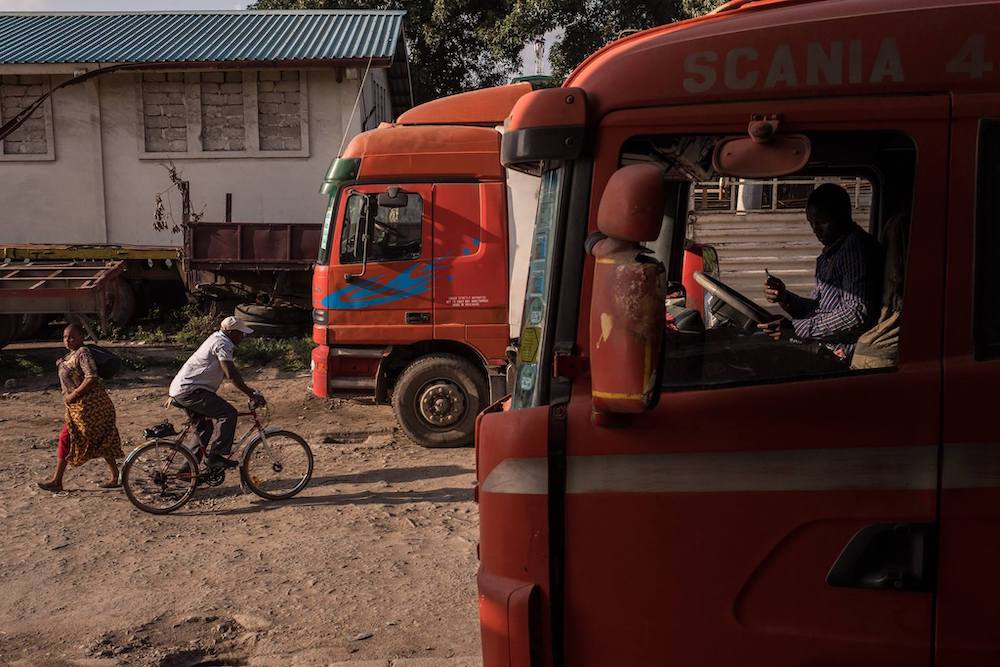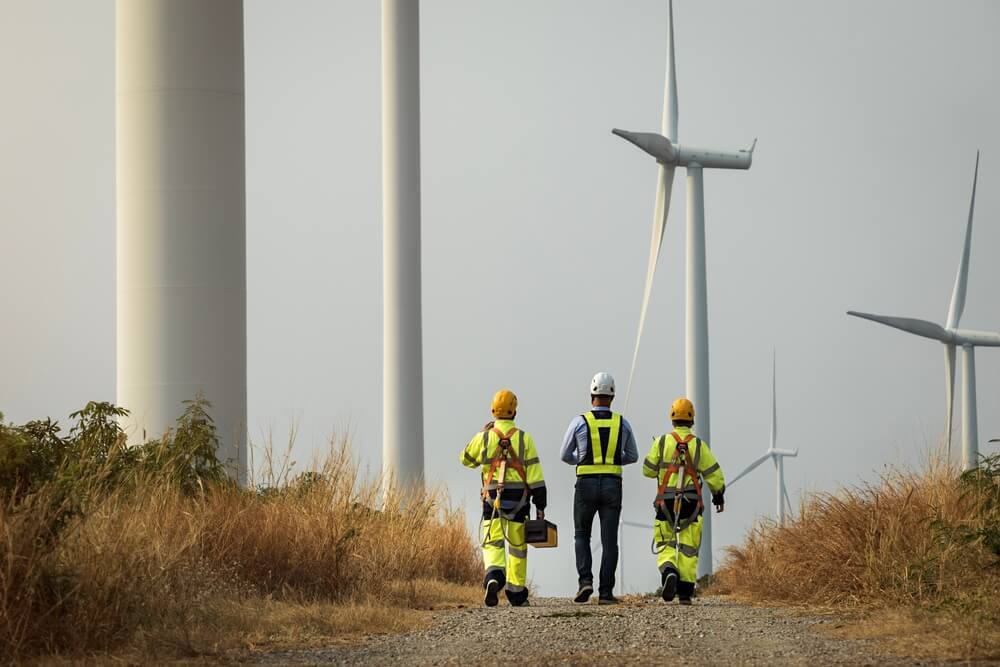Greetings, Agents of Impact!
Featured: Fintech in Africa
What’s at stake in African fintech as the venture capital market cools. The excitement – and volume of capital – surrounding African venture capital is facing a downturn. One sector sure to feel the investor retreat: fintech. Startups in the hottest VC sector in Africa attracted more than $7 billion since the start of 2021, with fundraising at an even faster pace this year than last year, at least until recently. Many of the startups targeting digital banking, crypto-trading and small business finance can claim to advance financial inclusion on a continent where most adults don’t use or have access to traditional bank accounts (for context, see “Olu Oyinsan, Oui Capital: Investing in Africa’s mass market“). But not all are supporting responsible financial inclusion. Lending to support productive uses that generate revenues and improve livelihoods may prove most resilient; providers of unsecured personal loans may be at risk, says Mercy Corps Ventures’ Scott Onder.
- Follow the money. More than 300 fintech startups have raised venture equity, debt or grants totaling $3.9 billion since the start of 2021, according to ImpactAlpha’s analysis of the Africa: The Big Deal database curated by GSMA. At least 75 have raised multiple rounds. Included in our review: enterprise tech startups that are branching into financial services. Companies enabling small business financing have raised about $770 million, including $100 million-plus rounds for Kenya’s Wasoko, Egypt’s MNT-Halan and Nigeria’s TradeDepot. Other hot fintech sectors: cross-border payments and remittances, and digital payments, including a $110 million round for Nigeria’s Interswitch.
- Crypto craze. Adoption of cryptocurrency trading and payments is skyrocketing in Africa, though the total value of cryptocurrencies traded is still small (see, “African startups develop crypto tools for inclusive prosperity“). Two dozen startups facilitating blockchain and crypto-based financial services have raised more than $130 million. Cameroon’s Ejara raised early funding to enable cryptocurrency trading and other investments for consumers in francophone Africa. Kenya’s Kotani Pay raised a seed round to integrate cryptocurrencies into digital payment apps. The biggest raises: South Africa’s Valr and Kenya’s Mara.
- Neo-banking. Digital banks and startups offering basic consumer finance products – many to first-time users – have raised at least $1.5 billion since the start of 2021. Senegal and U.S.-based mobile money services company Wave claimed $200 million. Nigeria’s Pivo, a digital bank for informal logistics workers and small businesses, is raising a seed round. In the race to grow, some unsecured consumer lending, including buy-now-pay-later financing for household purchases, may be leading individuals into debt traps (see, “Investors called to account for fintech lending practices as debt-traps emerge“).
- Keep reading, “What’s at stake in African fintech as the venture capital market cools,” by Jessica Pothering on ImpactAlpha.
- Hop on today’s Call. Just in: Nkiru Amadi-Emina of Pivo, a woman-led neobank for micro-enterprises in Nigeria, Wim van der Beek of Goodwell Investments, and Accion Venture Lab’s Amee Parbhoo will join today’s Agents of Impact Call, “Fintech, crypto and financial inclusion in Africa.” They’ll explore responsible financial inclusion with Olu Oyinsan of Nigeria-based Oui Capital, Nelly Chatue-Diop of Cameroon’s crypto-trading startup Ejara, and Mercy Corps Ventures’ Scott Onder. Join the discussion today at 8am PT / 11am ET / 6pm Nairobi (no RSVP required). Zoom right in.
Dealflow: Food Waste
ReFED and Closed Loop Partners launch funds to catalyze capital for food waste solutions. The Berkeley, Calif.-based food waste nonprofit and the New York-based fund manager are standing up three investment vehicles as part of the Circular Food Solutions Funding Platform. A fund, targeted at $80 million, will be managed by Closed Loop to provide debt and equity. A separate $10 million philanthropic fund, anchored by Google, will provide grants and another $10 million “innovation” fund will test ways to help consumers waste less. “To solve this system-level challenge, we need a system-level approach,” Refed’s Alex Coari told ImpactAlpha. The Betsy and Jesse Fink Family Foundation and others committed early capital.
- Catalytic capital. By co-investing and taking riskier positions, the $80 million investment fund aims to catalyze five to 10-times that amount in commercial capital. Last year, investors deployed a record $2 billion into imperfect foods, cold chains, shelf-life extension, food rescue, markdown apps and other food-waste tech companies. As much as $14 billion a year is needed to halve food waste by 2030 in the U.S. alone. Coari says the benefits of the investment vehicles include reduced food waste and greenhouse gas emissions, “but also unlocking additional capital into the space.”
- R&D capital. Early grantees of the ReFED Catalytic Grant Fund include Upcycled Food Association, Food Recovery Network and Hidden Gems, a for-profit venture exploring how to upcycle avocado pits.
- Share this post.
Aavishkaar seeks to raise a $500 million carbon fund for India and South and Southeast Asia. The Indian impact investment firm expects to close on at least $200 million by end of year, reports LiveMint. The Carbon First Fund aims to help companies meet net-zero commitments with investments in agroforestry, land management, regenerative agriculture and mangrove projects that generate carbon credits. “We will invest in businesses that are creating natural infrastructure with an aim to benefit from what is happening in the carbon market,” Aavishkaar’s Sanchayan Chakraborty told LiveMint.
- Offset LPs. Aavishkaar has closed six funds and manages close to $500 million in assets in India, Asia and Africa. Chakraborty says development finance institutions from previous funds are expected to join the carbon fund, as will corporates needing to offset their carbon emissions.
- Share this post.
Dealflow overflow. Other investment news crossing our desks:
- Healthcare app Solv raised $45 million, including $3.4 million from a special purpose vehicle raised by 75 female investors (of whom 45 are women of color and 25 are first-time investors).
- Planet FWD raised $10 million to track carbon emissions of consumer product brands in a round co-led by Acre Venture Partners and Congruent Ventures.
- The Office of Naval Research committed $32.5 million over five years to climate-tech nonprofit Elemental Excelerator.
- GREE Energy raised $250,000 from Water Unite Impact to decarbonize food processors in emerging markets.
Impact Voices: Market Landscape
Reports from the U.K. and India to Japan and Ghana show strong growth in impact investing. For a field obsessed with metrics, the data is surprisingly spotty on a global impact investing market that was trending toward $2 trillion pre-pandemic. The last survey by the Global Impact Investing Network, based on 2019 research, estimated global impact investments at $715 billion. New country-level data from the Global Steering Group for Impact Investment on some of the world’s largest economies show strong asset growth and returns. The reports “demonstrate the enormous, untapped potential in impact investments’ ability to improve people’s lives and benefit the planet,” the GSG’s Gila Norich writes in a guest post on ImpactAlpha. Eight of the GSG’s National Advisory Boards – country-level secretariats – have published reports since the start of the year (see also, “National advisory boards target local pension funds for small-business financing”). The upshot: there’s broad potential for new investment in markets from the U.K. and India to Japan and Ghana.
- Market sizing. The U.K. impact investment market was worth an estimated £58 billion ($73 billion) in 2020, with almost as much capital categorized as “impact-aligned,” according to the U.K.’s Impact Investing Institute and EY, which sized the market in March. In the Netherlands, impact assets amount to €150-180 billion ($160-190 billion), or about 5% of total assets under management. Japan’s impact investing market increased by 250% in 2021, to over 1.3 trillion yen ($10.2 billion), according to the Japan Social Innovation and Investment Foundation. More than 300 impact-focused businesses across India raised a total of $7 billion last year, up 135% from 2020, according to India’s Impact Investors Council. Reports from Ghana, Canada and Central America identify opportunities and gaps for impact investors. “Market sizing studies are essential to show where the impact community has come from and how it is growing,” Norich writes.
- Keep reading, “Reports from the U.K. and India to Japan and Ghana show strong growth in impact investing,” by Gila Norich on ImpactAlpha.
Agents of Impact: Follow the Talent
Kahini Shah, ex- of Gradient Ventures, joins Obvious Ventures as a principal… Melissa Bradley of 1863 Ventures, Allie Burns of Village Capital, David Kenney of VertueLab, and Revolution’s Steve Case are among the experts named to the National Advisory Council on Innovation and Entrepreneurship by U.S. Commerce Secretary Gina Raimondo.
Veris Residential promotes Karen Cusmano to senior vice president and head of sustainability and ESG… Chordata is accepting applications for its third cohort convening in September… McPherson Strategies seeks a remote social impact fellow… Nuveen Global Impact is looking for an analyst in New York… Big Issue Invest in the U.K. is hiring a remote senior impact manager for investment.
Stanford University is recruiting a director of its Center for Social Innovation… Omidyar Network is hiring a senior manager for external communications… Aunnie Patton Power is teaching an innovative financing masterclass at the London School of Economics’ Marshall Institute on June 7.
Thank you for your impact!
– June 1, 2022











